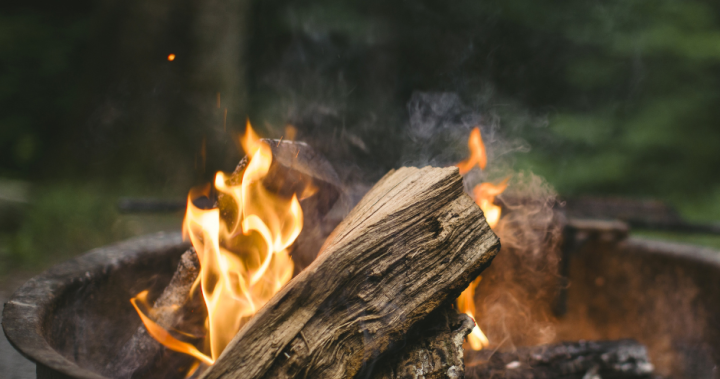A pair of reports out of British Columbia are detailing the complex, expensive and under resourced process of repatriating Indigenous historical items or remains back to their homes.
The studies, developed in partnership between the First Peoples’ Cultural Council and K’yuu Enterprise Corporation, call for changes including the creation of a centralized body to facilitate the work, a repatriation accreditation program for museums and other institutions, and “substantial” funding and support from the provincial and federal government.
Gretchen Fox, an anthropologist and the council’s acting heritage manager, said the growing interest in the moral and ethical requirement for repatriation shows resources are needed to set out steps that could be used in B.C. and in other provinces and territories.
“There was a need for a way forward, or a road map — what’s involved in repatriation, what’s the history of it,” she said.
“To have a really good understanding and documentation of what’s been lost, where these ancestors and belongings are held today, and what kind of work specifically is involved in locating them.”
Researchers with the K’yuu Enterprise Corporation did a survey and found more than 2,500 B.C. First Nation human remains and upwards of 100,000 belongings are known to be held in 229 institutions — including museums and universities — around the world.
Fox said the survey had only a 50 per cent response rate.
“So, we know that the numbers are much higher, and those numbers are just for ancestors and belongings that are associated with B.C. First Nations,” she said.
The main report breaks down repatriation into a four-step process starting with planning and research, followed by repatriation itself and the long-term caretaking of the items or remains.
It says 60 per cent of B.C. First Nations surveyed have already spent more than $1 million on repatriation work to date.

Get daily National news
Get the day’s top news, political, economic, and current affairs headlines, delivered to your inbox once a day.
“Since the Canadian government has yet to commit to dedicated repatriation legislation, policy and funding, many (B.C. First Nations) are reliant on grants and other mechanisms to support their repatriation work,” it says.
The report says when applying for grant programs that aren’t dedicated to repatriation, nations are forced to focus on strict funding criteria and narrow timelines rather than their own needs.
In 2016, B.C. became the first province in Canada to offer a grant to help pay for repatriation. While the report calls that funding “welcome,” it says the money has not kept pace with requests.
It says repatriation in Canada is “severely underfunded.”
“For decades, B.C. First Nations have funded this work through piecemeal grants and heavy reliance on volunteer labour,” it says.
Fox said there are a range of costs, from paying personnel to the technology required to research where items are located or the cost to store them properly.
A companion report offers what Fox calls a “really high level” cost estimate.
It suggests that if all 204 B.C. First Nations were funded over five years to participate in repatriation at various stages it would cost an estimated $663 million.
Fox said the number is not a request for funding, but rather an attempt to test the model and “show the monumental, significant, costs of this.”
The report says repatriation is also an economic and social driver with benefits like health and healing, jobs and community development.
“It has spiritual and cultural impacts of reconnecting with belongings and carrying out responsibilities to ancestors and It’s so meaningful, even if it’s engaged at a slower pace, or on a smaller scale,” Fox said.
She said having a First Nation-led centralized organizing body and programming to facilitate repatriation would be helpful to provide the opportunity to pool experience and resources.
“First Nations in B.C. are really leading the way in repatriation, and quite a few have quite a bit of expertise and experience around doing the work and also insights into the kinds of supports, whether it’s legislation (or) policy,” she said.
Inviting museums and other holding institutions would also be beneficial, Fox said.
In 2023, a totem pole that had been on display at the Royal B.C. Museum, was brought back to Bella Coola, located almost 1,000 kilometres northwest of Vancouver.
It was taken in 1913 and became part of the museum’s collection.
Representatives of the Nuxalk Nation said at the time that they had been trying to get the totem and other artifacts back since 2019.
Also in 2023, a memorial totem pole belonging to members of the Nisga’a Nation was returned from the National Museum of Scotland in Edinburgh, where it has been for nearly a century.
Last year, the Heiltsuk Nation celebrated the return of a chief’s seat that had been in the Royal BC Museum since 1911.
Fox said an accreditation program for institutions that hold First Nations’ remains and belongings could teach about repatriation and the practices and protocols needed.
“There’s not a lot of formal training for folks who are doing the work, so it makes sense for those who are experts to have an arena, to share that,” she said.
She said there is still work to be done, but over the last few decades more institutions are recognizing the “moral and ethical imperative to make things right. That these belongings and ancestors were stolen or taken under duress from First Nations communities, and that the right thing to do is to facilitate their return.”
“At the same time, First Nations repatriation experts are training the next generations within their communities, and they’re building relationships with institutions. And so we are seeing some significant movement and recognition that this is the right thing to do,” she said.






